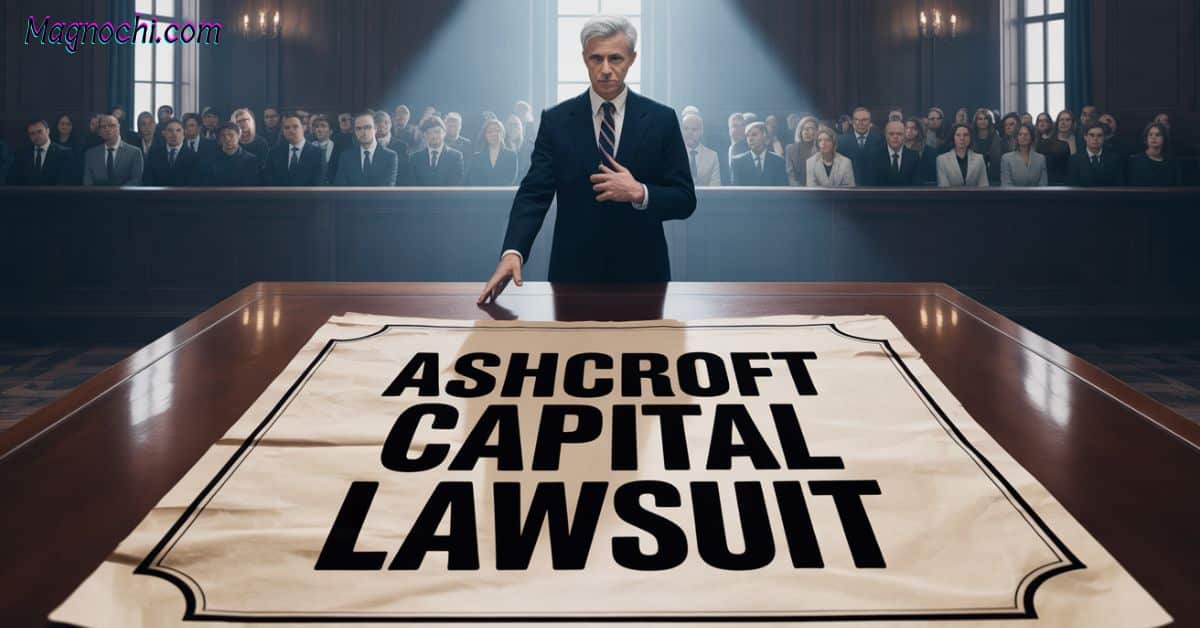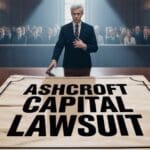The Ashcroft Capital lawsuit has sent shockwaves through the world of real estate syndication. With Joe Fairless, the co-founder of Ashcroft Capital, at the center of attention, investors, regulators, and industry experts are dissecting what went wrong and what it means for the broader multifamily real estate market.
This article explores the legal timeline, financial implications, investor reactions, and long-term industry shifts tied to the case.
Beyond surface-level headlines, it examines fund mismanagement, fiduciary duty breaches, investor misrepresentation, and distribution mismanagement that have fueled litigation.
Ashcroft Capital: Company Background
Ashcroft Capital emerged as a key player in the multifamily real estate market, specializing in Class B and C apartment complexes.
Founded by Joe Fairless and Frank Roessler, the firm carved its reputation through value-add renovations and aggressive acquisition strategies.
The company’s flagship Ashcroft Value-Add Fund attracted thousands of passive investors seeking consistent cash flow generation, investment exits, and projected IRR (Internal Rate of Return) between 12% and 18%.
Business Model Snapshot:
| Core Strategy | Details |
|---|---|
| Property Type | Class B & C multifamily apartment complexes |
| Investor Base | Passive investors (Limited Partners) |
| Revenue Sources | Asset management fees, refinancing, and distributions |
| Promises | Value-add renovations, strong cap rate compression, steady cash flow |
| Investment Vehicle | Real estate syndication structures |
For years, the strategy worked. However, cracks began to show post-2023 as economic downturns and rising interest rates eroded projected rent growth assumptions and inflated cap rates.
What Sparked the Ashcroft Capital Lawsuit?
The Ashcroft Capital lawsuit formally emerged in early 2025 when several Limited Partners (LPs) filed claims in Texas state court. At the heart of the dispute were allegations of:
- Fraudulent misrepresentation of financial performance
- Fund mismanagement and failure of internal controls
- Investor misrepresentation regarding cash flow projections
- Distribution mismanagement, including delayed or reduced payouts
- Breach of fiduciary duty by General Partners (GPs)
Investors argued that the risk disclosure documents downplayed potential downturns while highlighting aggressive asset value inflation.
This, combined with missed cash flow distributions and failed refinancing attempts, triggered accusations of investment vehicle mismanagement.
Legal Timeline and Case Status
The legal trajectory of the Ashcroft Capital lawsuit has been both swift and complex.
Case Timeline (So Far):
| Date | Event |
|---|---|
| Post-2023 | Rising interest rates and refinancing failures eroded cash flow |
| 2024 | Industry shaken by Nightfall Realty Group lawsuit |
| Early 2025 | LPs file lawsuit in Texas state court against Ashcroft Capital |
| August 2025 | Court enters pre-trial discovery phase |
| 2023 (reference) | Similar case: Blue Horizon Capital SEC investigation into mismanagement |
Currently, the case remains in the pre-trial discovery phase, where both sides exchange evidence, review third-party audits, and prepare expert testimony.
Legal experts note three possible outcomes: settlement, dismissal or exoneration, or a full trial and judgment.
Investor Response and Impact
The lawsuit has sparked a spectrum of reactions among investors.
Common Investor Reactions
- Investor panic – rushing to file withdrawal requests
- Investor patience – waiting for legal clarity before making moves
- Lawsuit participation – joining class action lawsuits or pursuing legal consultation
“Some investors view this as the cost of alternative investment strategies, while others see it as a breach of trust that requires direct legal action.” – Independent Investment Analyst
Shifts in Investment Preferences
- Increased interest in REITs (Real Estate Investment Trusts) for liquidity and oversight
- More capital flowing into T-Bills (Treasury Bills) for safety amid uncertainty
- Growing skepticism toward syndication risks
Industry-Wide Repercussions
The Ashcroft Capital lawsuit is not just about one company. It highlights systemic weaknesses in the real estate syndication space.
Key Industry Implications
- Investor scrutiny is intensifying – LPs now demand better risk disclosures and independent property appraisals
- GP accountability is under the microscope – fiduciary obligations are facing tougher legal interpretation
- Regulatory oversight is growing – with calls for more federal oversight similar to SEC intervention in Blue Horizon Capital
The fear is that syndication may lose its appeal, especially among passive investors burned by misleading projections.
Comparisons with Similar Lawsuits
The Ashcroft case isn’t happening in isolation.
- Nightfall Realty Group lawsuit (2024): Similar allegations of distribution mismanagement and fraudulent misrepresentation
- Blue Horizon Capital SEC investigation (2023): Probed for fund mismanagement and lack of regulatory oversight
Comparative Lessons:
- Courts increasingly side with investors when fiduciary duty breaches are evident
- Lack of internal controls and poor investor reporting platforms often serve as red flags
- Settlement negotiations usually follow when financial audits expose inconsistencies
Due Diligence Lessons for Investors
One of the clearest takeaways from the Ashcroft Capital lawsuit is the importance of investment due diligence.
Red Flags to Watch For
- Overly optimistic IRR projections
- Lack of third-party audits
- Inconsistent cash flow distributions
- No clear explanation of asset management fees
- Failure to disclose risks tied to market cycles in real estate
Questions Every Investor Should Ask
- How transparent are the General Partners with reporting?
- Are property appraisals verified by independent third parties?
- What mechanisms exist for investor protections in downturns?
- How are investment exits planned if refinancing fails?
- What safeguards exist against asset forfeiture?
Possible Legal and Financial Outcomes
The lawsuit could resolve in several ways, each carrying distinct consequences.
Settlement
- Most likely outcome if pre-trial discovery phase reveals weaknesses in defense
- Could involve financial compensation and improved investor protections
Dismissal or Exoneration
- Possible if claims of fraudulent misrepresentation lack sufficient evidence
- Would help Ashcroft Capital rebuild reputation but still leave trust issues
Full Trial and Judgment
- Risk of asset forfeiture if fund mismanagement is proven
- Long timeline with uncertain recovery for investors
Rebuilding Trust in Real Estate Syndication
Regardless of the legal verdict, the industry faces a trust crisis. To rebuild confidence, firms must embrace:
- Transparency-driven investor relations with robust reporting platforms
- Stronger internal controls and third-party financial audits
- Investor education through literacy campaigns about syndication risks
Only by improving accountability can the multifamily real estate market restore its credibility as a reliable investment vehicle.
Conclusion
The Ashcroft Capital lawsuit stands as a cautionary tale for investors and syndicators alike. Allegations of fund mismanagement, fiduciary duty breaches, investor misrepresentation, and distribution mismanagement have reshaped conversations about alternative investment strategies.
As the case proceeds through Texas state court, its outcome whether settlement, dismissal, or full trial and judgment will set a precedent for real estate syndications across the country.
For investors, the message is clear: demand transparency, scrutinize deals, and never underestimate the importance of due diligence.
In a sector built on trust and projections, one lawsuit has already changed the rules of the game.
FAQs
What triggered the Ashcroft Capital lawsuit?
The case arose from allegations of fund mismanagement, fiduciary duty breaches, and investor misrepresentation in real estate syndications.
How does the Ashcroft Capital lawsuit affect investors?
Investors face delayed distributions, uncertainty, and shifting preferences toward safer alternatives like REITs and T-Bills.
What could be the outcome of the Ashcroft Capital lawsuit?
Potential outcomes include a settlement, a dismissal or exoneration, or a full trial and judgment in Texas state court.
Read more knowledgeable blogs on Magnochi









